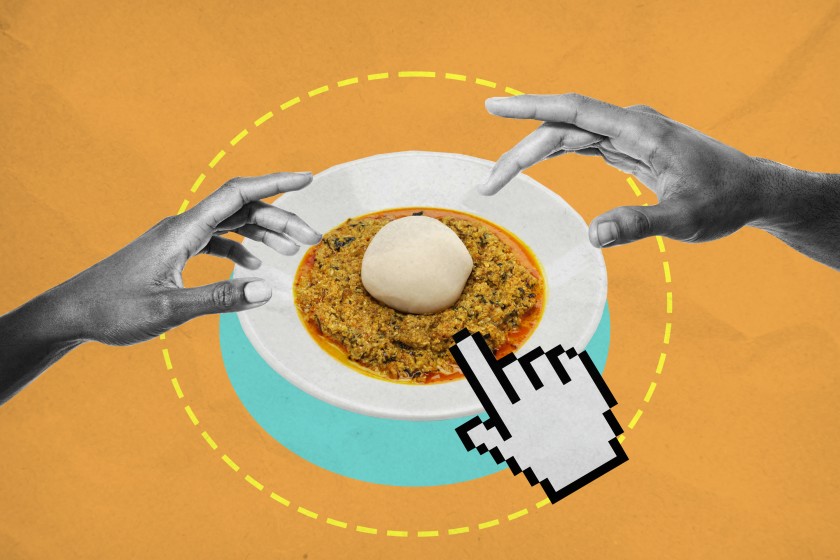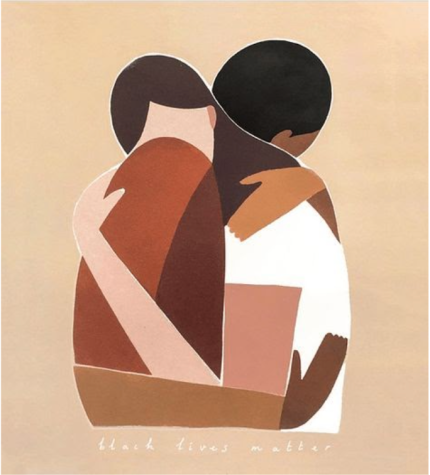The #FufuChallenge: A Perpetuation of the Demeaning of African Culture
“Food is not rational. Food is culture, habit, craving and identity”
– Jonathan Safran Foer, American Novelist
The Covid-19 lockdown has allowed people all over the globe to unleash their creativity and experiment with new passions. Thanks to the expansive use of social media, these experiences can be broadcast and enjoyed with a wider audience. TikTok is one of the leading platforms where internet trends and their creators enjoy fleeting moments of glory. By the time we have mastered one challenge, another is ready to take over. From dancing to comedy, several internet trends have served as entertainment in an ever-uncertain world. While some of these social media phenomena have been interesting, others have displayed insensitivity, ultimately offending some viewers. One such trend is the recent “#FufuChallenge.”
Fufu is a popular West African staple that is prepared using boiled starchy crops. Normally these would be cassava, plantains or yams, which are then pounded into a smooth, thick and dough-like shape. Traditionally, fufu is prepared using a large mortar and pestle—one person pounds the fufu while two others swiftly turn it over with their hands until it is ready. It is then served with a stew consisting of various meats, fish or steamed vegetables with lots of spices. Fufu is also popular in many Caribbean countries. It was introduced there during the era of transatlantic slavery. From Ghana to Senegal to Haiti, each nation has its own variation of, and name for, fufu depending on how it is made and what it is served with. In most West African and Caribbean households and traditional dining settings, fufu and stew are eaten with the right hand.
It is unclear how the #FufuChallenge began. According to the LA Times, TikTok videos with the hashtag “#fufu” had been viewed over 200 million times by February this year—and the numbers keep rising. Like most food challenges it is considered an engaging educational experience; a lighthearted trend where people can learn about West African cuisine.
But is that the case? Why is African cuisine being turned into a social media “trend”? Why not other cuisines around the world? To the best of my knowledge, there are no internet challenges where people try German sauerbraten or Italian rigatoni; two widely-enjoyed and distinctive dishes. Why do people see it as exciting to use African food for internet challenges and viral stunts? I would argue that the #FufuChallenge reflects the participants’ overall perception of African traditions and cultures as primitive, backward or outrightly repulsive. This challenge presents African culture as a “thing” that can be picked up, tried, and thrown away when deemed unfavourable.
The #FufuChallenge is like any other social media phenomenon. Or at least, it is supposed to be. People film themselves on TikTok driving to the nearest West African restaurant in their locality, purchase fufu with an accompanying stew and ultimately, express their opinions to viewers. It’s as simple as that. Right?
While some TikTokers seemed to have liked the delicacy, and had positive feedback, other reactions to the dish were highly disrespectful. Demeaning reactions ranged from spitting the food back into the plate, to comparing it to pet food. Other participants complained about its texture, smell, or the overall “weirdness” of the meal. Out of nowhere, the ridiculous notion that one must smack the fufu like a drum before eating it became popularised as Tiktokers tried it. Many chose not to hide their abhorrence for fufu, calling it “trash” or filling their post captions with sick-face emojis.
I am not suggesting that everyone should like the taste of a dish one has just tasted for the very first time. We all have food preferences. But the question still remains: “Why organise a social media tasting event for an African delicacy? Why express one’s disgust for a dish enjoyed by millions members of a human race in such a disrespectful manner?
The #FufuChallenge shows the ambivalent relationship non-Africans have with African culture. Many may love to adorn themselves in exotic African jewellery, clothing, and hairstyles. They may be able to list the 20 biggest Afrobeats artists and recite the lyrics of each of their popular songs. However, in the same breath, some of these same people are condescending or ignorant of Africa’s rich, diverse, and deliberately suppressed history. They pick and choose certain aspects of the continent’s unique cultures and traditions as they suit their personal gratifications.
African culture is not a trend. It is a lifestyle that has spanned millennia and is still going strong to this day. No culture should ever be treated as a social media trend to occupy some bored TikTokers and gain followers or fame in the process of mocking another people’s cherished heritage. The #FufuChallenge plays out as a continuum in the constant mockery of African culture. Aside from that, driving several minutes or even hours to a West African eatery to purchase a specialty, taste it, and spit it out—all while filming for the world to see—is not only a waste of time, money, energy, and, of course, food, it is highly spiteful to a people. It is offensive to a whole continent.
So please, enough with the #FufuChallenge. In addition to degrading a people, those who participate in the #FufuChallenge should consider those who have nothing to eat. As a result of the coronavirus, inequalities have been heightened and livelihoods have been ravaged, leaving the most vulnerable to go to bed hungry among several other catastrophes. COVID-19 has caused over 50 million people in the United States to suffer from food insecurity. More than 18 million of them are children.
Now, if you really want to explore different cuisines, learn from some of the cultural icons of our time, such as Stanley Tucci or Anthony Bourdain who have used their notoriety to spread the joy of the discovery of people’s foods, and the history that created them. Use your TikTok profile to share elevating pursuits of new knowledge rather than your contempt of other cultures. Post videos that genuinely uplift various people and their traditions, instead of undermining them. Share stories that raise awareness of the bigger problems, and not actions that cause problems. Do exactly what Tiktok wants to achieve for its users: make their day to make your day, because every second counts. Create content that makes others happy. And as Jonathan Foer said, “food is identity” so don’t ridicule people’s identity.

Hello, everyone! My name is Temisola and I am in my senior year at UNIS. I like to write articles about current events. I also enjoy writing opinion pieces...













